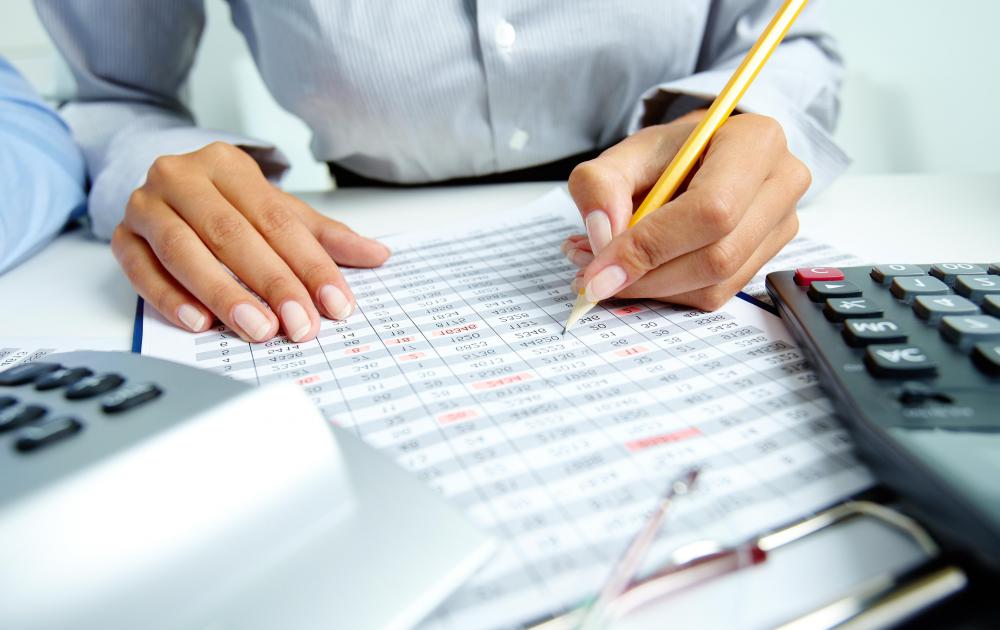At WiseGEEK, we're committed to delivering accurate, trustworthy information. Our expert-authored content is rigorously fact-checked and sourced from credible authorities. Discover how we uphold the highest standards in providing you with reliable knowledge.
What Does an Accounts Receivable Analyst Do?
An accounts receivable analyst is in charge of monitoring a company's ability to collect on its outstanding invoices. The analyst may participate in collection activities, including the investigation of potential billing errors. Additional research is typically done on why payments are missing, short or delinquent. As part of the accounts receivable process, an analyst may recommend changes to a customer's credit limit and help reconcile an account's payment history.
Usually, the accounts receivable analyst will manage a group of payment accounts for a company. When vendors purchase supplies or services on credit they may have various payment terms that allow them to take percentage discounts off the total or take time to pay the balance in installments. Part of the analyst's job is to make sure that the credit terms are being followed and that any discrepancies and misunderstandings related to the credit terms are resolved promptly.

Making sure that a company collects on its unpaid balances is a major job responsibility for an accounts receivable analyst. A portion of this job duty involves examining account activity and contacting customers to find out why payments may be late. In some cases, collection tactics may need to be used to encourage customers to resolve any past due balances. One of the ways in which this is sometimes accomplished is by restricting access to credit.
In addition to resolving any record errors, an accounts receivable analyst must periodically monitor each customer's account and payment activity. If a customer is consistently delinquent, the analyst may need to modify credit terms by reducing limits and increasing late fees or finance charges. The credit privileges of some customers may need to be temporarily terminated while payment disputes and outstanding balances are resolved.
Running reports and recordkeeping are other important tasks that an accounts receivable analyst will typically be responsible for. As contact is made with customers regarding past due payments, the analyst will usually need to document when the customer was contacted and what type of exchange occurred. For instance, a lessee whose account is past due may receive a warning letter with a late charge, followed by a notice to either pay the outstanding balance or surrender the lessor's property. It is also important that any verbal exchanges, such as promises to send payment, are documented.
Part of the documentation process involves reconciling account records. Account reconciliation involves posting payments against outstanding invoices and making sure that balances are cleared. The reconciliation process may also involve verifying all charges and credits against a customer's account on a monthly basis.
AS FEATURED ON:
AS FEATURED ON:











Discuss this Article
Post your comments